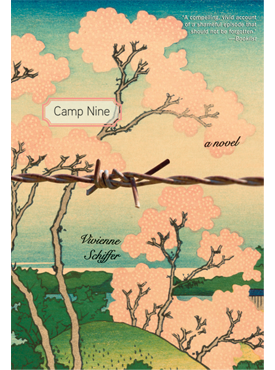At the First Baptist Church of Maeby, Arkansas, the sins of the child belonged to the parents until the child turned thirteen. Sarah Jones was only eight years old in the summer of 1964, but with her mother Esther Mae on eight prayer lists and flipping around town with the generally mistrusted civil rights organizers, Sarah believed it was time to get baptized and take responsibility for her own sins. That would mean sitting on the mourner’s bench come revival, waiting for her sign, and then testifying in front of the whole church.
But first, Sarah would need to navigate the growing tensions of small-town Arkansas in the 1960s. Both smarter and more serious than her years (a “fifty-year-old mind in an eight-year-old body,” according to Esther), Sarah was torn between the traditions, religion, and work ethic of her community and the progressive civil rights and feminist politics of her mother, who had recently returned from art school in Chicago. When organizers from the Student Non-Violent Coordinating Committee (SNCC) came to town just as the revival was beginning, Sarah couldn’t help but be caught up in the turmoil. Most folks just wanted to keep the peace, and Reverend Jefferson called the SNCC organizers “the evil among us.” But her mother, along with local civil rights activist Carrie Dilworth, the SNCC organizers, Daisy Bates, attorney John Walker, and indeed most of the country, seemed determined to push Maeby toward integration.
With characters as vibrant and evocative as their setting, Mourner’s Bench is the story of a young girl coming to terms with religion, racism, and feminism while also navigating the terrain of early adolescence and trying to settle into her place in her family and community.
Sanderia Faye is a PhD candidate at the University of North Texas. She received an MFA from Arizona State University and a BS from the University of Arkansas, Pine Bluff. She is co-founder of Kimbilio Fiction, a Community of Writers of the African Diaspora. Mourner’s Bench is her first novel.
Visit SanderiaFaye.com!
Winner, 2017 Arkansiana Award, Arkansas Library Association
Winner, 2017 Philosophical Society of Texas Book Award, Fiction
Winner, 2016 Hurston/Wright Legacy Award, Debut Fiction
“With Mourner’s Bench, Sanderia Faye announces herself as a bold, at times intoxicating, original voice in American fiction. This is a stunning debut.”
—Dennis Lehane, author of Gone Baby Gone, Mystic River, and Shutter Island
“Chapter by chapter, without ever seeming to struggle, Mourner’s Bench completely immerses us in small-town 1960’s Arkansas, a time and place of racial turmoil and social conflict that very much speaks to our own. Perhaps the greatest of the book’s many successes is the richness of its young protagonist, Sarah Jones, whose voice is so candid and whose difficulties are so involving that it’s impossible not to sympathize with her. As a result, your stance on the civil rights battle in which she finds herself embroiled evolves right along with hers, taking on unexpected nuances and complexities. Reading her story, no matter what you believe history might have taught us since, you feel as if the questions of racial justice are not only unresolved but barely yet asked.”
—Kevin Brockmeier, author of The Brief History of the Dead
“Brilliantly written, Mourner’s Bench takes the reader back to 1960s small-town Arkansas and tells a story about the public and private ways that black and white people worked for or resisted change. A powerful, brilliant book.”
—Vivienne Schiffer, author of Camp Nine
“Faye’s clear-eyed yet tender vision imbues this story of our difficult past with ringing hope for the future. This is a novel that lingers in your spirit like the bittersweet chords of a favorite song.”
—Tayari Jones, author of Silver Sparrow and Leaving Atlanta
“A quiet tour de force, a story of innocence and coming of age, beautifully told and brimming with life.”
—Rosalyn Story, author of Wading Home and More Than You Know
“Sanderia Faye’s portrait of life in a black community in rural Arkansas during the era of segregation is well-drawn, and her characters are unforgettable. The book is well-written and well-researched. It should be required reading for anyone seeking to understand a little-known chapter of civil rights history. This compelling novel will appeal to literary enthusiasts and history buffs alike.”
—Jennifer Jensen Wallach, coeditor of Arsnick: The Student Nonviolent Coordinating Committee in Arkansas
“It’s Freedom Summer, 1964, in tiny Maeby, Arkansas, and three SNCC volunteers have come to town determined to integrate the public library and all-white school. They’re joined in their efforts by eight year old Sarah’s unconventional, hot pants–wearing mother. The efforts to introduce change divide the black community as many are determined to preserve the old order. Sarah finds herself caught in the middle of all this, first siding with her conservative grandmother and then, gradually, coming to see her mother’s point of view. Throughout she is guided by her wise great-grandmother, an early civil rights pioneer. Change is further visited on Sarah’s life when she determines to be baptized against her worldly mother’s wishes. Slurs, insults, and harassment from the local authorities threaten the movement, as do two disastrous fires. And then Sarah’s mother decides to run for city council. Faye’s novel is far too long and detailed as she seems determined to include every possible aspect of the civil rights movement on a local scale. Too, Sarah seems older—far older—than her years. Nevertheless, the book succeeds at dramatizing an essential era in American history and is a welcome addition to civil rights literature.”
—Michael Cart, Booklist
“[A]n absorbing meditation on the meaning of religion in a small town as well as a keen-eyed perspective on the way one African-American community encountered the civil rights movement. An astute coming-of-age tale set against an all-too-relevant background.”
—Kirkus
“Mourner’s Bench takes us to a significant social crossroads yet avoids racial polarization through characters of equal complexity, with flaws and fine points and all-too-human motivations. All told, the novel offers a sure sense of its place and people, and a closer look at those who truly lived through the civil rights movement—a chapter in American history that still seems to be writing itself.”
—Foreword Reviews
“Faye’s writing is detailed and descriptive, depicting moments that richly capture life in a small segregated and impoverished town. … Mourner’s Bench is a well-researched and commendable debut effort that expands and complicates the body of literature written about the Civil Rights movement by asking readers to lend equal consideration and weight to the roles age, gender, and religion played.”
—The Rumpus



